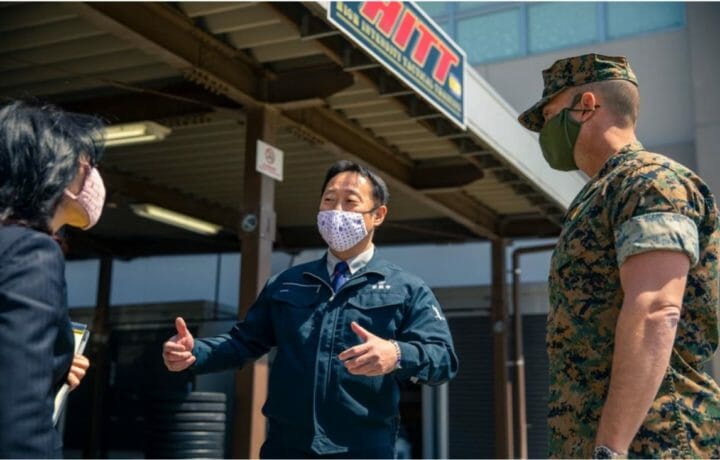An incident last week highlights the need in Japan for a security clearance process – and the complexities of creating one. Japan is in the midst of an effort to develop a security clearance process for industry. Currently, Japan has a vetting process that applies to military and civil servants, but no such program to protect the critical information housed by private companies – including those creating cutting-edge technology.
In February, Japan’s Prime Minister Kishida Fumio accelerated conversations into the need for Japan to create a security clearance process that could help it better partner with other countries in the G7. Japan’s efforts to bolster security were well underway before last week’s arrest of a Chinese researcher for allegedly leaking sensitive technical and proprietary information to a competitor. But the incident is just the latest to highlight why security clearance procedures are important.
The 59-year-old man is accused of emailing sensitive information about fluorine compounds to a Chinese firm. Quan Hengdao was arrested last week and denies the allegations, saying he sent the email but it “didn’t constitute trade secrets.”
In addition to working for the Japanese company, Quan also taught at the Beijing Institute of Technology, which is purported to have connections to the Chinese military.
Why Country of Origin is an Issue in the Clearance Process
Foreign influence and foreign preference are two of the 13 adjudicative guidelines used in the U.S. to establish eligibility to access classified information. The idea is that if your allegiance to another country is higher than your allegiance to the U.S., the government shouldn’t be trusting you with its secrets. And when it comes to motivation for breaches, while money and narcissism are factors, so is identity, ideology, and country of origin.
This is where Japan’s effort to create an industrial and personnel security program for industry gets very complicated. The number of Chinese nationals living and working in Japan is certainly higher than the U.S., who has itself faced significant issues preventing the siphoning of intellectual property and trade secrets from the U.S. to China. In the past twenty years the number of Chinese immigrants into Japan has steadily increased. A complicating factor is the reality that once an individual becomes a citizen of Japan, Japan doesn’t recognize their prior citizenship. Chinese nationals who may have immigrated, become citizens, and then moved in and out of various positions may no longer be recognized based on their origins in China. That further highlights the need for a security clearance process that doesn’t take citizenship at face value, but asks questions about birthplace and country of origin.
Security Clearance Cultural Considerations
Beyond its proximity and ties to China, cultural factors are another element Japan has to consider in creating its personnel security program. Unlike the U.S. where authenticity, transparency and even a show about Big Brother watching you is kosher, in Japan privacy is more paramount – along with taking someone’s word at face value. In the U.S., you can say ‘trust but verify’ and have the average citizen agree – that same notion in Japan would be considered offensive.
The path to a personnel security program isn’t easy (just ask the U.S., where the efforts to improve vetting, policy, and security clearance processes are ongoing). But it’s necessary to protect proprietary and critical national security information.
Last week’s arrest – five years after the documents were allegedly emailed – highlights the need for a security clearance process that not only allows for the vetting of individuals who have access to sensitive information, but creates penalties for the breach of data.
Cybersecurity is an international effort – and the international community must work together to prevent the rapid infiltration and exploitation of information taking place on a daily basis by Russia and China. Security clearances are just one piece of the puzzle – and one Japan is wise to tackle in the coming year.




